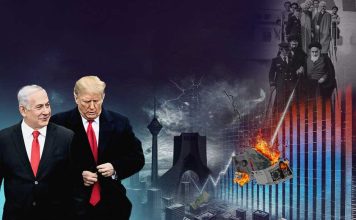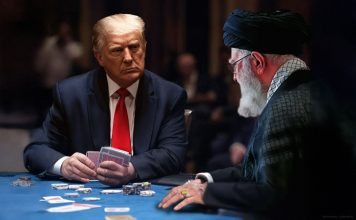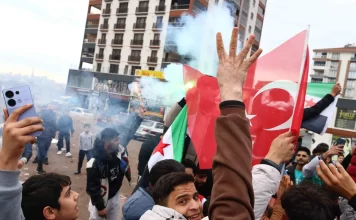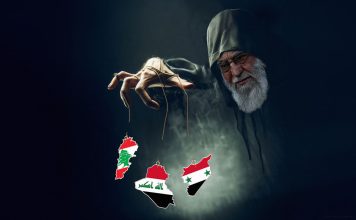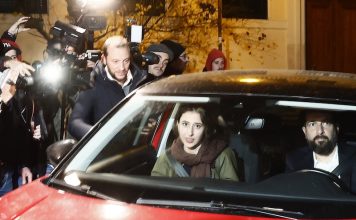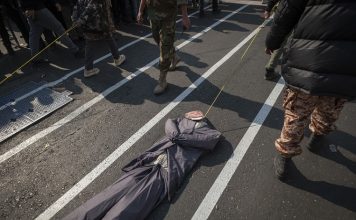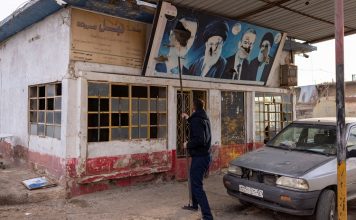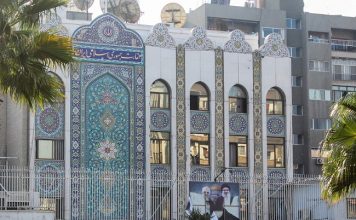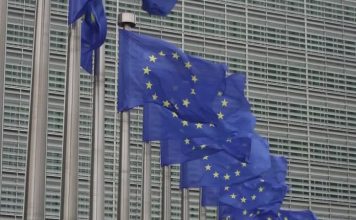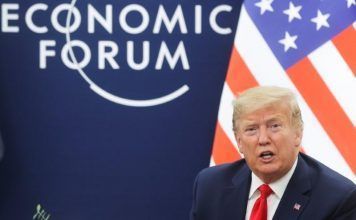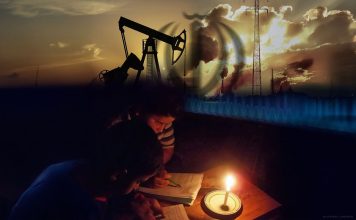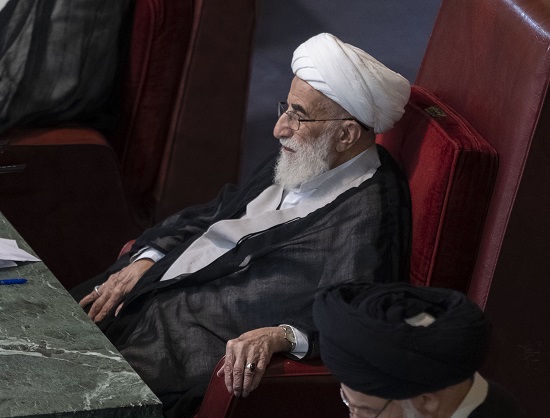
By Ahmad Rafat
Elections for the Iranian Parliament and for the sixth Assembly of Experts (which has the power to appoint Iran’s Supreme Leader) are due to be held on March 1. The candidates in the elections are vying for 290 seats in the Majlis (Parliament) and 88 seats in the Assembly of Experts.
These elections have been engineered to ensure that the Majlis and the Assembly of Experts will emerge from the voting process with uniform representation. Yet the near-certain absence of a large segment of the electorate from the March elections is causing severe problems for the Islamic Republic.
The latest official polls conducted in Iran, including a government survey published by the Tehran-based “Khabar Online,” closely linked to the former Majlis Speaker Ali Larijani, project the voter turnout in the upcoming elections to be below 30 percent.
Based on a survey conducted in Tehran, approximately 15 percent of the population is expected to go to the ballot boxes in the upcoming elections. The projected low voter turnout is attributed to three main reasons, including “ineffectiveness of parliament and elections,” “widespread corruption among government officials and Majlis representatives,” and “lack of belief in improvement of conditions.”
Shortly after its publication, authorities directed the Iranian media to remove the survey’s results from their websites and instead use their resources to generate public excitement and enthusiasm for the March elections.
Meanwhile, in seven provinces, the number of candidates for the Assembly of Experts either equals or is less than the number of seats to be filled. As a result, based on published data, there will be no contenders for a total of 13 seats in the assembly.
Disqualifications of several candidates have further exacerbated the situation. Notably disqualified political figures who will not run in the elections include former Iranian President Hassan Rouhani and the former Minister of Intelligence Mustafa Pourmohammadi.
Iran’s Supreme Leader, Ali Khamenei, has repeatedly urged the public to vote in the elections, and the state media has labeled calls to boycott the elections as a “conspiracy of the enemies,” echoing similar rhetoric used by Khamenei in the past.
State media outlets have not been analyzing the impacts of economic conditions, poverty, political unrest, failure of the government’s foreign politics, and regional tensions on the elections.
Ahmad Khatami, a member of the Assembly of Experts who also serves as a Tehran Friday Prayers leader, recently highlighted two distinct “revolutionary” and “counter-revolutionary” currents in Iran.
“Counterrevolutionaries aim to transform the election into a referendum against the regime by actively discouraging and persuading people to abstain from voting, so that they achieve what they failed to do in the riots in the forthcoming election,” Khatami said. “Therefore, participation is important.”
[aesop_image img=”https://kayhanlife.com/wp-content/uploads/2023/12/2023-09-26T000000Z_756402701_MT1NURPHO000FG69B5_RTRMADP_3_IRAN-POLITICS.jpg” panorama=”off” align=”center” lightbox=”off” captionsrc=”custom” caption=”Islamic Republic’s President Ebrahim Raisi (C) next to Ahmad Khatami attends Assembly of Experts’ biannual meeting in the old Iranian Parliament building in Tehran, September 26, 2023. REUTERS./” captionposition=”left” revealfx=”off” overlay_revealfx=”off”]
President Ebrahim Raisi’s government has taken measures to expedite the voting process in Iran and increase voter turnout. One significant change is the possibility of receiving a ballot for the upcoming elections even without a birth certificate — only with a driver’s license.
Some officials have suggested that it is not mandatory to wear the hijab when casting ballots, and that women can enter the voting precincts without a hijab. The measure is aimed at boosting voter turnout, given that hospitals and emergency rooms still ban women who are not wearing the hijab.
Journalists Niloufar Hamedi, Elahe Mohammadi Face Re-Arrest For Not Wearing Hijab
Two hundred television channels have been launched by the Islamic Republic of Iran Broadcasting (IRIB) specifically to broadcast candidates’ election campaigns three weeks before the elections.
According to the director-general of the IRIB, Peyman Jebelli, the TV channels are available to the candidates 24 hours a day, giving them ample opportunity to advertise and promote their messages. The aim is to generate interest among the electorate, who have yet to show enthusiasm for the upcoming elections.
The March 1 elections will be the first election since the national uprising sparked by the death of Mahsa (Zhina) Amini in September 2022 while in the custody of the Morality Police in Tehran, which morphed into a global movement under the banner ‘Woman, Life, Freedom.’
Although a bloody crackdown, mass arrests, imprisonment, and the execution of several protesters dissuaded people from pouring out into the streets, it did not eliminate widespread discontentment across the country.
Meanwhile, all opposition forces, including Prince Reza Pahlavi and Narges Mohammadi, the 2023 Nobel Peace Prize winner, are calling for a boycott of the elections. Even some self-proclaimed reformist groups in Iran have urged the public to abstain from voting this time around.
Prince Reza Pahlavi has said: “Every vote for the regime will prolong its life.”
In a message from her cell in the Evin Prison, Narges Mohammadi said: “Boycotting the elections orchestrated by the despotic religious regime is not only a political but also a moral obligation for those who aspire to uphold principles of justice and advocate for democratic governance in Iran.”
Analysts said the Islamic Republic is using the formal structure of elections strategically — to perpetuate its absolute power and uphold the existing despotic governing system, which primarily benefits the ruling minority.
Elections are being manipulated to serve as a tool for legitimizing the power of the ruling minority, analysts added.

